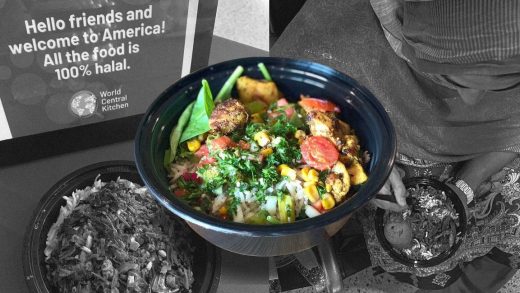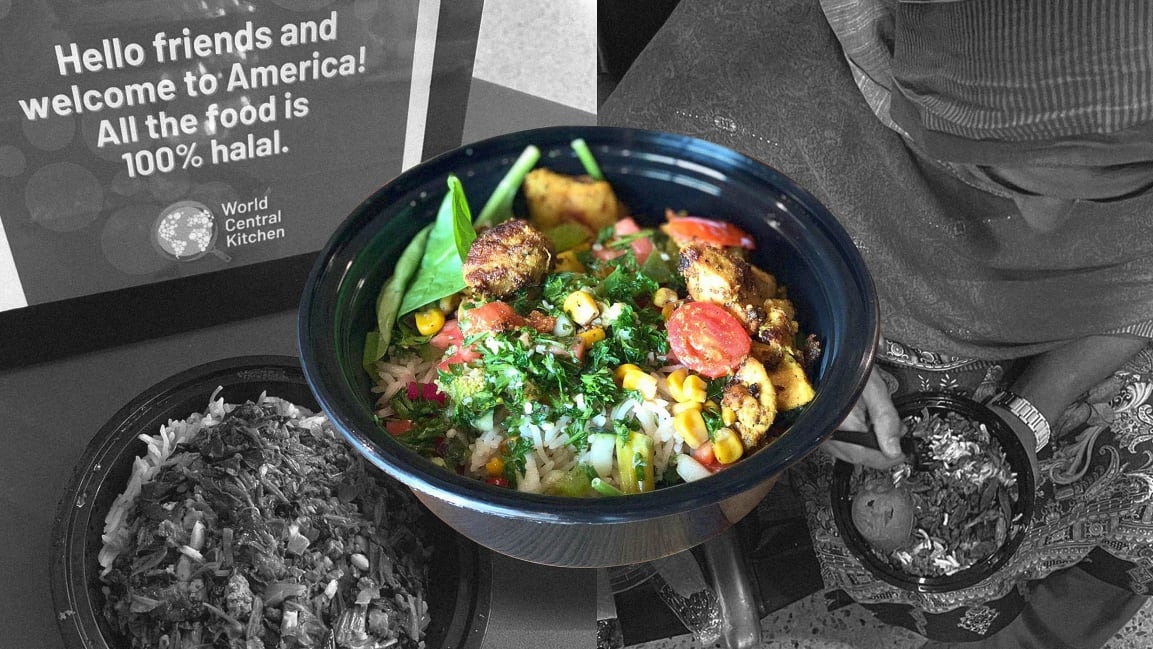Stew, schwarma, and spinach: the first meals Afghan refugees are eating as they land in America
After disembarking a red eye flight at 7 a.m. on August 24, Tim Kilcoyne, director of chef operations at the meal provisions nonprofit, World Central Kitchen, walked into Washington, D.C.’s Dulles Airport to witness Afghan children about the same age as his own son, four or five, “ripping open little bags of chips, and just taking an entire handful and shoveling it in their mouths, because they’re so hungry.”
He and his fellow staff made some phone calls, and by 11:30 a.m., 500 hot meals from a popular Lebanese restaurant in the D.C. area arrived at Dulles.
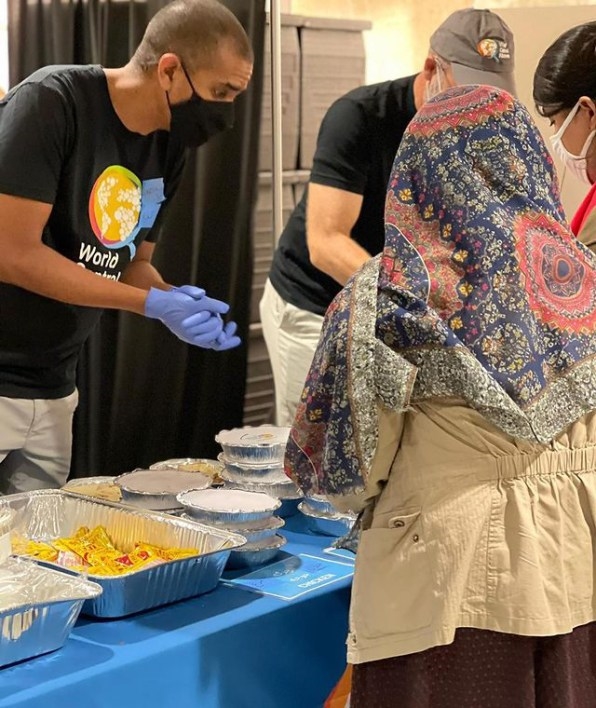
For Afghan refugees making uncertain and life-altering journeys to the U.S., the passage is not straightforward. They face multiple flights, lengthy processing routines, and medical tests. Most endure it all without enough food. World Central Kitchen—the nonprofit founded by chef José Andres that provides food to communities in need—aims to make the transition just a bit easier for these people fleeing a new Taliban regime, with a hot meal. It’s a simple and modest necessity, but it makes a difference for these individuals as they recover and move onto the next phase of their journeys.
Though it focuses principally on helping provide food for those in need during natural disasters (it’s also on the ground in Louisiana, helping after Hurricane Ida), World Central Kitchen is poised to also respond rapidly to crises, such as this influx of refugees following the end of the U.S. occupation of Afghanistan. It’s perhaps an easier feat in Washington, D.C., the home of the organization, but it still relies on volunteer work and a network of chefs and restaurants that can jump into action immediately.
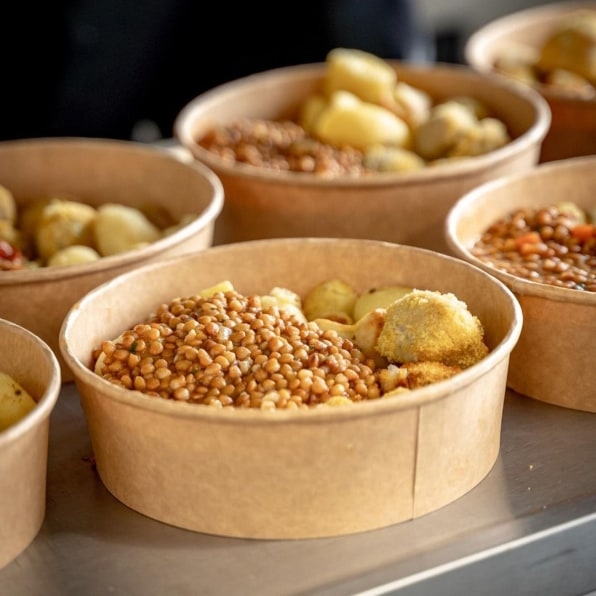
“I couldn’t even imagine the journey that they’ve been on,” Kilcoyne says of the refugees. “There’s many people [for whom] it’s been four or five or six days since they’ve had a meal that wasn’t a bag of chips.” Afghans leaving Kabul are routed through military bases in Europe or the Middle East known as “lily pads,” where they face screening and background checks that can take days. At some of these U.S. bases, Kilcoyne heard that the only food they had on offer were ham sandwiches, or MREs (military meals, ready-to-eat), which often contain pork.
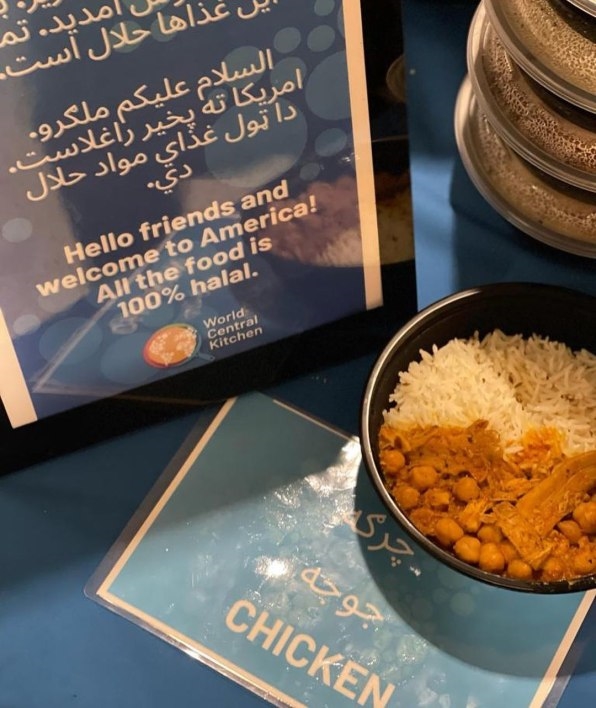
In contrast, WCK makes special efforts to procure meals that are both halal, and familiar in flavors to Afghan cuisine. This dedication to comfort food is always an objective for WCK. In Haiti, where the group is currently also responding to the recent earthquake, chefs on the ground made chicken marinated overnight in a classic Haitian green sauce; and a stew with native aromatic herbs, including sorrel and ti bonm. In D.C., rather than cooking on site, they purchased meals from local restaurants with Afghan chefs, who know the cuisine and comfort staples that can hit the spot. “It’s like us going home for Thanksgiving and eating mom’s stuffing,” Kilcoyne says.
One such chef, who works at Lebanese Taverna, which provided those first 500 meals, has been making a traditional ground lamb dish, stewed with spinach, and served over rice. One of three other Afghani-owned restaurants, Kabobi by the Helmand, has been preparing braised chicken with chickpeas, which Kilcoyne describes as similar to an Indian korma curry. There’s been beef schwarma; falafel with pickled turnips, sumac onion, hummus and tahini; and hot tea, donated by Starbucks.
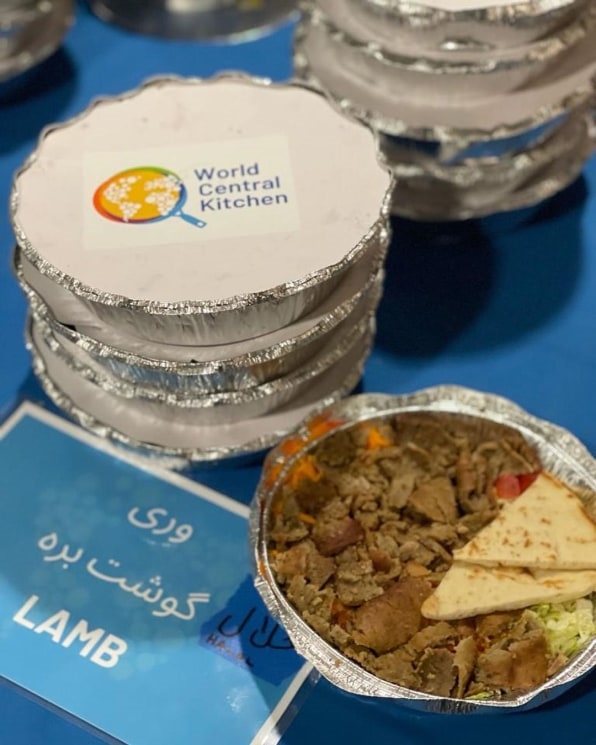
The arrival of migrants into Dulles is unpredictable. Flights have arrived sporadically; Kilcoyne recalls about 22 or 23 planes landing on August 29. After arriving in Dulles, and once through customs and testing negative for COVID-19, the new arrivals can finally grab a meal at the WCK pop-up table, served by one of the three to seven volunteers on duty, and dig in. That’s “their first real moment of being able to sit down and breathe,” he says. “To know that this is the first meal that I’m handing you, this is the first meal you’re having on your new journey, is pretty amazing.”
After their meal, though, the next phase of their journeys is uncertain. From the airport, they go to the nearby Dulles Expo Center, before being placed on a bus to one of four military posts-turned-shelters, in Virginia, New Jersey, Wisconsin, or Texas. It’s unclear how long they’ll be there, but it’ll be longer for those who need to start new visa paperwork. They’ll then join family, or relocate to other shelters with the help of community nonprofits.
So, the nourishment at Dulles is a brief, but crucial, respite and recoup of energy. “The moment they get to us, you know, the first bite or two, I think it’s really uplifting for them,” Kilcoyne says, adding they’ve served a total of 17,000 meals as of August 30. “Being able to welcome them with a familiar dish makes a world of difference.”
(60)

